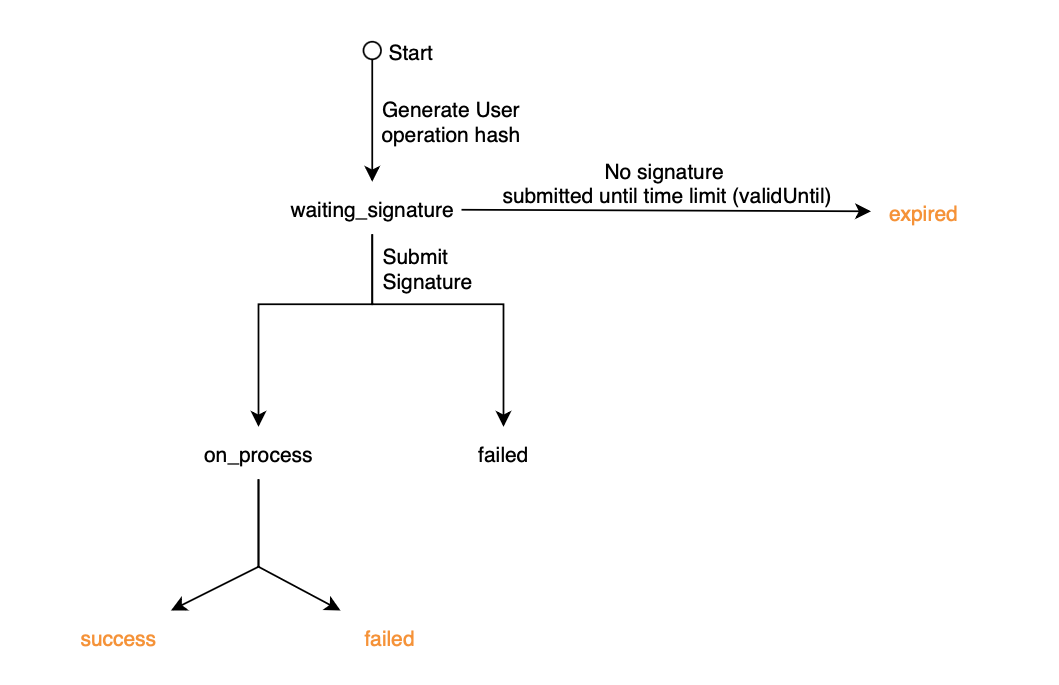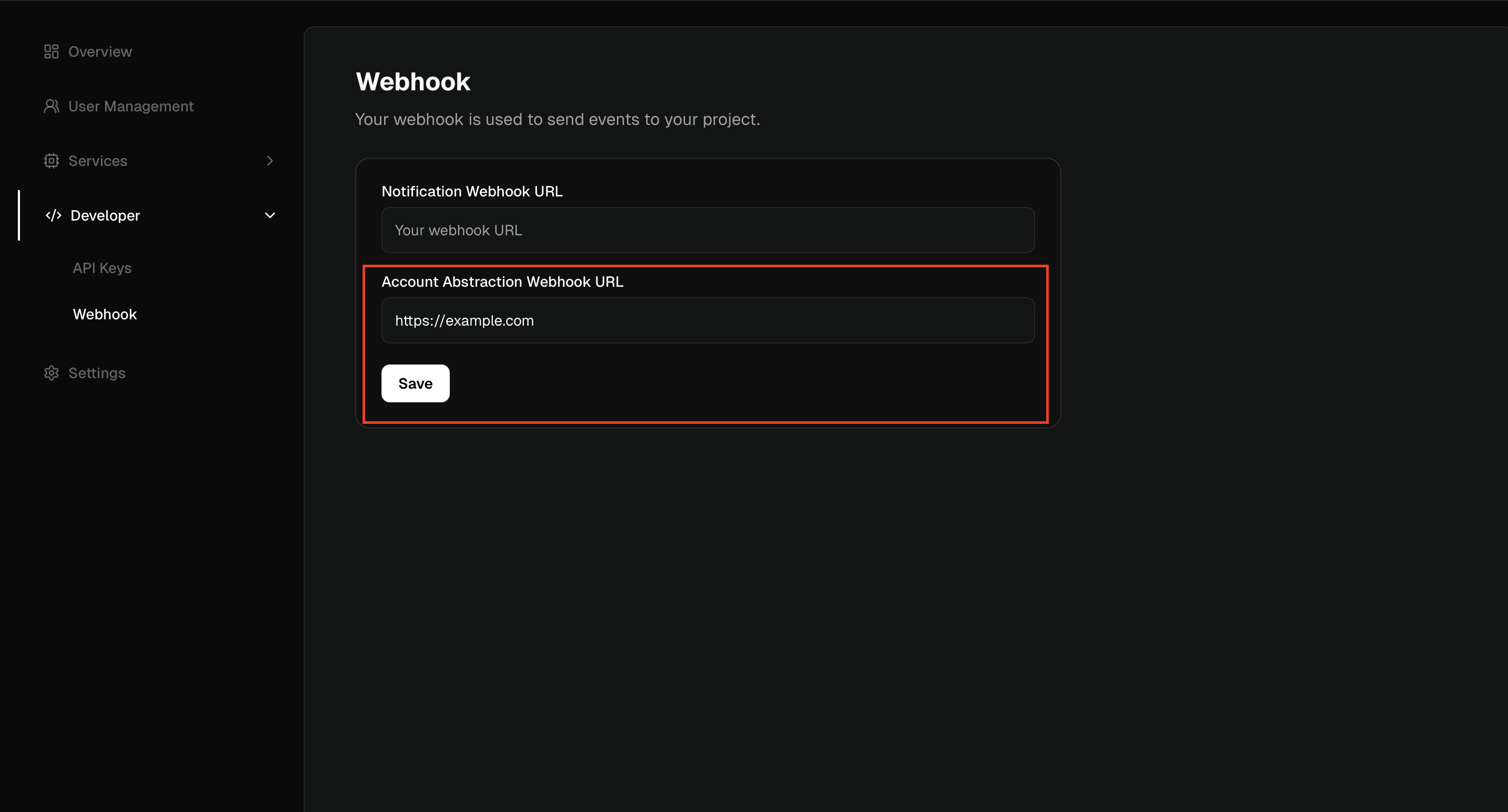Account Abstraction Webhook
Why Use a Webhook?
User operations in Xellar's Account Abstraction system are asynchronous. This means that after you initiate an operation (such as a transaction or signature request), the result is not immediately available. Instead, the operation progresses through several states until it reaches a final outcome.
To keep your application updated in real time, Xellar provides a webhook mechanism. This allows your backend to receive notifications about important lifecycle events for user operations, so you can update your UI, trigger business logic, or notify users as soon as the status changes.
Webhooks are essential for tracking the status of user operations without polling the API.
User Operation Lifecycle Events
The following diagram illustrates the lifecycle of a user operation. Orange-highlighted states are the events that will trigger a webhook notification:

- expired: No signature was submitted before the time limit (
validUntil). - success: The user operation was processed successfully.
- failed: The user operation failed during processing or after signature submission.
You will receive a webhook event when the user operation reaches any of these states.
How to Set Up the Webhook
You can configure your webhook endpoint in the Xellar Dashboard.

Ensure your webhook endpoint is publicly accessible and can handle POST requests.
Webhook Event Data
When a user operation reaches a terminal state (expired, success, or failed), Xellar will send a POST request to your configured webhook URL with the following JSON payload:
{
"accountId": "68027beb6a1ae347d38563d7",
"ownerId": "0x123...abc",
"clientId": "client-xyz",
"appId": "app-abc",
"signature": null,
"userOpHash": "0xabc...def",
"status": "success",
"type": "transfer_erc20",
"network": "polygon",
"chainId": 137,
"payer": "organization",
"validUntil": "2024-06-01T12:00:00Z",
"failedReason": null,
"bundlerVersion": "1.2.3",
"successAt": "2024-06-01T12:01:00Z",
"failedAt": null,
"sentAt": "2024-06-01T12:00:10Z"
}| Field | Type | Description |
|---|---|---|
accountId | string | The ID of the smart account involved. |
ownerId | string or object | The owner identifier (may be a string or object depending on context). |
clientId | string | The client ID associated with the operation. |
appId | string | The app ID associated with the operation. |
signature | string or null | The signature submitted for the operation, if any. |
userOpHash | string | The unique hash of the user operation. |
status | string | The status of the user operation (success, failed, expired). |
type | string | The type of user operation (e.g., transfer_erc20). |
network | string | The network name (e.g., polygon). |
chainId | integer | The blockchain network identifier. |
payer | string | Who paid for the operation (e.g., organization, owner). |
validUntil | string (ISO 8601) | The time until which the operation is valid. |
failedReason | string or null | The reason for failure, if any. |
bundlerVersion | string | The version of the bundler that processed the operation. |
successAt | string or null (ISO 8601) | The timestamp when the operation succeeded. |
failedAt | string or null (ISO 8601) | The timestamp when the operation failed. |
sentAt | string or null (ISO 8601) | The timestamp when the operation was sent. |
Fields such as Data and Receipt are not included in the webhook payload.
Always verify the authenticity of incoming webhook requests and handle them idempotently.